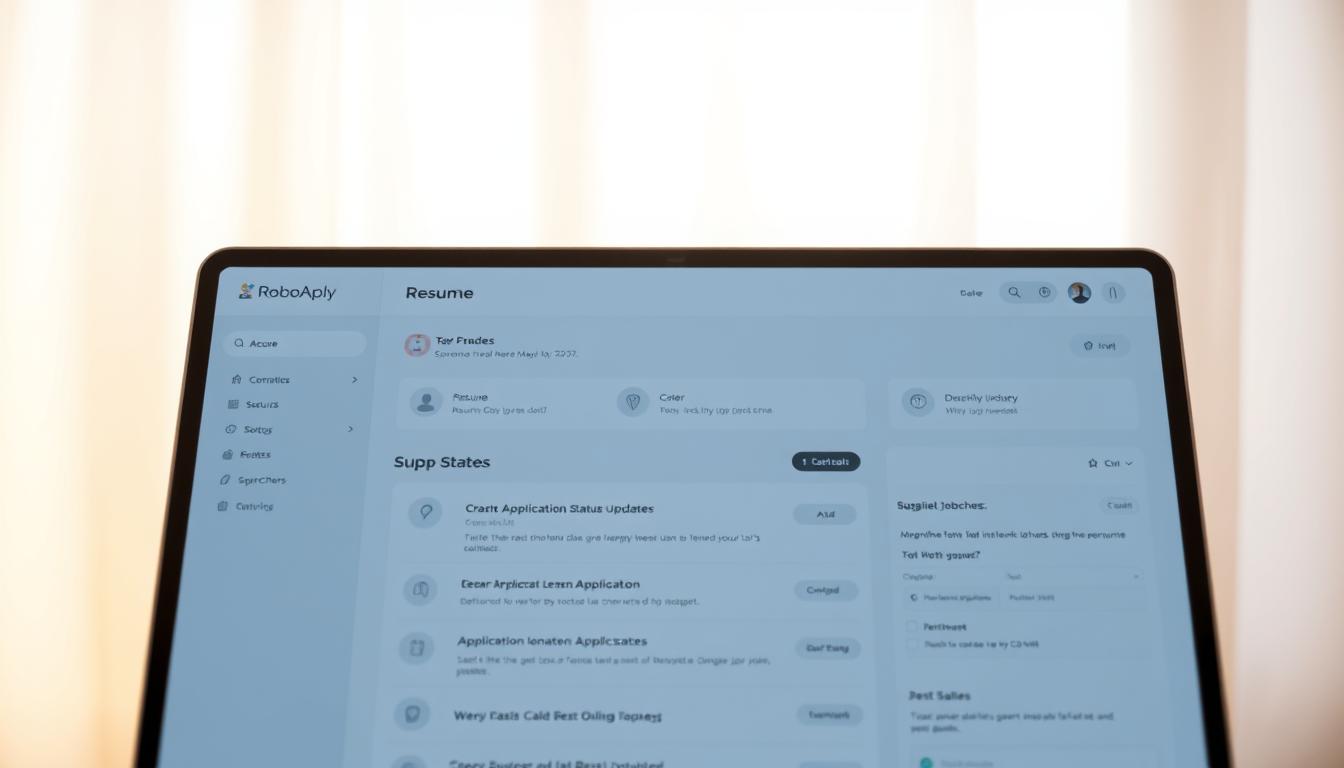So, you’ve been running your own show, calling the shots, and making things happen as a business owner. That’s a big deal! But maybe now you’re looking for something new, or a bank needs to see your professional history. Whatever the reason, putting together a business owner resume can feel a bit different from a regular job application. You’re not just listing duties; you’re showing off your ability to build, lead, and grow something from the ground up. This article will walk you through how to put together a solid business owner resume that gets noticed. We’ll cover different types of business owners and give you some real examples to work with.
Key Takeaways
- Your business owner resume should highlight your leadership, financial management, and strategic planning skills.
- Quantify your achievements with numbers and results to show your impact and success.
- Tailor your resume to the specific opportunity, even if it’s for investment or a new venture, by focusing on relevant experiences.
1. Business Owner
Being a business owner means you’ve juggled many roles, and your resume needs to show that. It’s not just about listing tasks; it’s about highlighting your entrepreneurial spirit and the results you’ve achieved. Let’s get into how to make your resume stand out.
Think of your resume as a marketing tool. It needs to grab attention and show potential employers what you bring to the table. RoboApply can help you tailor your resume to specific job descriptions, making sure you highlight the skills and experiences that matter most to them.
Here’s how to approach writing a resume as a business owner:
- Focus on achievements: Instead of just listing your responsibilities, quantify your accomplishments. Did you increase revenue? Reduce costs? Improve customer satisfaction? Use numbers to back up your claims.
- Highlight transferable skills: Even if you’re moving into a different industry, many of the skills you developed as a business owner are valuable. Things like leadership, problem-solving, and communication are always in demand.
- Tailor your resume: Don’t send out the same generic resume for every job. Take the time to customize it for each position, highlighting the skills and experiences that are most relevant.
Remember, your resume is your first impression. Make it count by showcasing your unique skills and accomplishments as a business owner.
Your resume should tell a story of growth, innovation, and success. It’s about showing how you took initiative, overcame challenges, and delivered results. Use action verbs to describe your accomplishments and make your resume more engaging.
Consider this example:
Let’s say you owned a small retail store. Instead of saying "Managed store operations," you could say "Oversaw all aspects of store operations, including inventory management, staff training, and customer service, resulting in a 15% increase in sales year-over-year." See the difference? The second statement is much more impactful because it quantifies your achievements.
Here’s another example:
Instead of saying "Developed marketing strategies," you could say "Developed and implemented marketing strategies that increased brand awareness by 20% and generated a 10% increase in website traffic." Again, the numbers make all the difference.
When listing your work experience, be sure to include the name of your business, your title (e.g., Owner, CEO, Founder), and the dates of your employment. Then, use bullet points to describe your accomplishments and responsibilities. Be specific and use action verbs to make your resume more engaging. For example, if you’re looking for fleet manager resume examples, make sure to highlight any experience you have managing vehicles or logistics.
By following these tips, you can create a resume that showcases your skills and accomplishments as a business owner and helps you land your next job. Remember to use RoboApply to tailor your resume and make sure it’s optimized for the specific position you’re applying for.
2. Small Business Owner

Being a small business owner is a unique challenge. You’re not just managing a business; you’re often wearing multiple hats – from marketing and sales to customer service and operations. Your resume needs to reflect this versatility and demonstrate your ability to drive success in a resource-constrained environment. Let’s look at how to showcase your skills effectively.
When crafting your resume, remember that quantifiable achievements speak volumes. Instead of just saying you "improved customer satisfaction," show how much you improved it by. Did you increase sales by a certain percentage? Did you reduce operational costs? Numbers grab attention and provide concrete evidence of your capabilities. RoboApply can help you identify and highlight these achievements, ensuring your resume stands out.
It’s important to tailor your resume to each specific job you’re applying for. Highlight the skills and experiences that are most relevant to the position. This shows the hiring manager that you understand their needs and that you’re a good fit for their company.
Here’s an example of how a small business owner might structure their resume to highlight their diverse skill set and accomplishments. Remember to use action verbs and quantify your achievements whenever possible.
For example, instead of saying "Managed social media accounts," try "Increased social media engagement by 40% through targeted content and community management strategies."
Consider these points when writing your resume:
- Highlight your adaptability: Small business owners often have to adapt to changing market conditions and customer needs. Show how you’ve successfully navigated these challenges.
- Showcase your problem-solving skills: Running a small business involves overcoming obstacles. Provide examples of how you’ve identified and solved problems.
- Emphasize your leadership abilities: Even if you’re the only employee, you’re still leading the business. Demonstrate your ability to motivate yourself and others (if applicable) to achieve goals.
Remember, your resume is your first impression. Make it count by showcasing your unique skills and accomplishments as a small business owner. Consider using a business resume example to get started. Highlighting your achievements, such as expanding store locations or growing online presence, can demonstrate your success. For instance, Giulia’s resume effectively showcases her achievements as a Small Business Owner, including 30% annual growth and a 50% increase in repeat customers. This demonstrates her success in driving business growth, highlighting relevant skills for a Business Owner role. To further enhance your resume, focus on action verbs that showcase your accomplishments and skills effectively.
3. Ecommerce Business Owner
Okay, so you’ve been running an online store? That’s awesome! Let’s get your resume ready. It’s not just about listing products; it’s about showing how you made that digital cash register ring. RoboApply can help you tailor your resume to highlight the skills that matter most to potential employers.
Here’s the deal: you need to show you’re more than just someone who can list items on a website. You’re a business person, plain and simple. Think about how you can show that off on your resume.
- Focus on Growth: Did you increase sales year over year? By how much? Numbers talk.
- Highlight Marketing: What strategies did you use to drive traffic and conversions? SEO, social media, email marketing? List them.
- Show Problem-Solving: What challenges did you face, and how did you overcome them? Supply chain issues, customer complaints, technical glitches?
Don’t just say you "managed" an online store. Show what you accomplished. Use action verbs and quantify your results whenever possible. Think about the impact you had on the business. What did you improve? What did you build? What did you optimize?
Here’s an example of how you might phrase a bullet point:
- "Increased online sales by 40% in one year through targeted social media campaigns and SEO optimization."
See? That’s way better than just saying "Managed social media accounts." It shows what you did and what the result was. Let’s get into some specifics.
And remember, if you’re looking for more examples, there’s a custom resume guide specifically for e-commerce business owners.
4. Self Employed Business Owner

Being a self-employed business owner is a different ball game than working for someone else. You’re not just listing job duties; you’re showcasing your entrepreneurial skills business owner resume and achievements. It’s about showing you can wear many hats and still get the job done. RoboApply can help you tailor your resume to highlight these unique strengths.
Think of your resume as the story of your business’s journey. It’s not just about what you did, but the impact you made, the revenue you generated, and the growth you achieved. Quantify your accomplishments whenever possible.
Remember, your resume is a marketing tool. It needs to grab attention and show potential clients or partners that you’re the real deal. Don’t be afraid to brag a little (but back it up with facts!).
Here’s an example of how you might structure your experience section:
- Company Name: [Your Business Name]
- Dates of Operation: [Start Date] – [End Date or Present]
- Your Title: Owner/Founder/CEO
Then, instead of just listing duties, focus on accomplishments:
- Increased revenue by 30% in the first year through targeted marketing campaigns.
- Successfully launched a new product line that generated $50,000 in sales within three months.
- Developed and implemented a customer service strategy that improved customer satisfaction scores by 25%.
Don’t forget to highlight skills relevant to your industry. Here are some common skills for self-employed business owners:
- Financial Management
- Marketing & Sales
- Customer Service
- Operations Management
- Strategic Planning
And remember to tailor your resume to each specific opportunity. If you’re applying for a grant, focus on the skills and accomplishments that demonstrate your ability to manage funds and achieve results. If you’re seeking a partnership, highlight your experience in collaboration and business development. RoboApply can help you list self-employment effectively on your resume.
5. Keywords
Okay, so you’re a business owner looking to revamp your resume. One of the most important things to consider is keywords. Think of them as the secret sauce that helps your resume get past those pesky Applicant Tracking Systems (ATS). Basically, these systems scan your resume for specific words that match the job description. If you don’t have them, your resume might not even get seen by a human. RoboApply can help you identify the right keywords to use.
Using the right keywords can significantly increase your chances of landing an interview.
Here’s the deal: you need to sprinkle relevant keywords throughout your resume, but don’t just stuff them in randomly. Make sure they fit naturally within your experience descriptions and skills sections. Think about what skills and experiences are most relevant to the jobs you’re applying for, and then use keywords that reflect those things. It’s all about showing the hiring manager that you’re a great fit for the role.
Keywords are not just about getting past the ATS; they’re about communicating your value to the employer. They highlight your skills and experience in a way that resonates with what the company is looking for.
Here are some general categories of keywords to consider:
- Industry-Specific Terms: These are words and phrases unique to your industry. For example, if you’re in e-commerce, you might use terms like "SEO optimization" or "conversion rate."
- Skills: List both hard skills (like financial modeling or project management) and soft skills (like communication or leadership).
- Action Verbs: Use strong action verbs to describe your accomplishments. Instead of saying "Responsible for," try "Managed" or "Led."
To find the best keywords, start by carefully reviewing job descriptions for roles you’re interested in. Pay attention to the words and phrases that are used repeatedly. These are likely important keywords that you should include in your resume. You can also use online tools to help you identify relevant keywords. Remember to tailor your resume to each job you apply for, using the most relevant keywords for that specific role. Think of your resume as a webpage, and you need to optimize it for search SEO specialist resume.
Don’t forget to check out lists of ATS resume keywords to make sure you’re covering all your bases. And remember, it’s not just about listing the keywords; it’s about showing how you’ve used them to achieve results. Make sure to provide specific examples of your accomplishments, using numbers and data to back up your claims. You can strategically place resume keywords in your summary, experience, and skills sections.
Also, use action verbs to make your resume more impactful.
6. Action Verbs

Using the right action verbs can really make your resume pop. Instead of just saying what you did, these verbs help you show how you did it and what you achieved. It’s all about making your experience sound dynamic and impactful. RoboApply can help you choose the best ones for your specific situation.
Think about it: "Managed a team" is okay, but "Spearheaded a team of 10, increasing productivity by 15%" is way better. See the difference? Let’s look at some examples.
Here’s a list of action verbs to consider for your business owner resume:
- Led
- Developed
- Implemented
- Managed
- Increased
- Reduced
- Achieved
- Generated
- Oversaw
- Directed
- Negotiated
- Launched
Action verbs are your friends. They help you paint a picture of your accomplishments and make your resume more engaging. Don’t be afraid to use them liberally, but make sure they’re accurate and relevant to your experience.
When describing your experience, try to quantify your achievements whenever possible. For example, instead of saying "Improved customer satisfaction," say "Improved customer satisfaction scores by 25% in Q3 2024." Numbers speak volumes!
Here are some more examples of how to use action verbs effectively:
- Spearheaded the development of a new marketing strategy that increased sales by 30%.
- Implemented a cost-reduction program that saved the company $50,000 annually.
- Managed a team of 15 employees, ensuring projects were completed on time and within budget.
Remember, the goal is to make your resume stand out and show potential employers what you’re capable of. Using strong action verbs is a great way to do that. Make sure to highlight your specific success metrics to really drive the point home.
7. Header
Your resume header is prime real estate. It’s the first thing recruiters see, so make it count! It needs to be clear, concise, and easy to read. Think of it as your personal branding statement. RoboApply can help you format it perfectly, ensuring it’s ATS-friendly and visually appealing.
Header Essentials
Your header should include:
- Your Full Name: Make it prominent and easy to read. Use a slightly larger font size than the rest of the text.
- Professional Title: This should reflect your current role or the type of position you’re seeking. For a business owner, this could be "Owner," "CEO," or "Founder."
- Contact Information: Include your phone number, email address, and professional social media profiles (like LinkedIn). Make sure your email address sounds professional!
A well-crafted header makes it easy for recruiters to contact you and shows attention to detail. It’s a small thing that can make a big difference.
Example
Here’s an example of a good header:
John Smith
Owner | CEO
(555) 123-4567 | john.smith@email.com | linkedin.com/in/johnsmith
Tips for an Effective Header
- Keep it simple: Avoid unnecessary information or graphics.
- Use a professional font: Stick to readable fonts like Arial, Calibri, or Times New Roman.
- Make it ATS-friendly: Ensure your header is easily scannable by applicant tracking systems. Using a simple format helps. You can use a resume checker to make sure it is.
- Be consistent: Use the same formatting throughout your resume.
Common Mistakes to Avoid
- Using a unprofessional email address (e.g., partyanimal@email.com).
- Including irrelevant information (e.g., your age or marital status).
- Using a font that is too small or difficult to read.
- Forgetting to include a professional title that reflects your corporate law positions.
By following these guidelines, you can create a header that grabs attention and makes a positive first impression. Remember, your header is your personal brand, so make it shine! You can also find resume examples to help you get started.
8. Summary

Your resume summary is your chance to make a killer first impression. It’s like the elevator pitch of your career, so make it count! Think of it as a brief but powerful introduction that highlights your most relevant skills and experience. It’s especially useful if you’re switching careers or have a long and varied work history. Let’s get into it.
A well-crafted summary can set you apart from other candidates.
It’s your chance to show off what you bring to the table.
A resume summary is optional, but it can be a great way to provide additional context about your experience and highlight your most impressive accomplishments. If you have a long career history or are making a career change, a summary can help explain your background and tie together seemingly disparate experiences.
Here’s the deal: a good summary isn’t just a list of skills. It’s a story about what you’ve achieved and how you can help a potential employer. It’s about showing them, not just telling them, that you’re the right person for the job. RoboApply can help you fine-tune your summary to make sure it hits all the right notes. For example, you can use business management resume examples to get started.
Think about these points when writing your summary:
- Highlight your key achievements.
- Tailor it to the specific job you’re applying for.
- Keep it concise and easy to read.
Don’t just say you’re a hard worker; prove it with examples. Did you increase sales by 30%? Did you streamline operations to save the company money? These are the kinds of details that will grab a hiring manager’s attention. If you’re looking for more specific guidance, check out some resume summary examples to see how others have done it.
Remember, your summary is your chance to shine. Make it count!
So, to sum it all up, getting a great job doesn’t have to be a huge headache. Our smart tools can help you with your resume and cover letter, making the whole process much easier. If you’re ready to find your dream job without all the stress, why not give our AI a try? You can learn more about how we help people get hired faster by checking out our website.
Conclusion
So, that’s the rundown on making a good resume if you’ve been a business owner. It’s not always easy to put all that experience into a standard format, but it’s definitely doable. Remember to show off what you’ve done, especially the big wins and how you led things. Think about the skills you used every day running your business—those are the ones employers want to see. With a little effort, you can make a resume that really shows off your unique background and helps you get where you want to go next.
Frequently Asked Questions
Why do I need a resume as a business owner?
A business owner resume shows off your skills and successes from running your own company. It’s useful if you’re looking for a new job, trying to get a loan for your business, or even just want to keep a record of your achievements. It helps others see what you’ve learned and how you’ve grown your business.
What should I put on my business owner resume?
When you write your resume, focus on what you actually did and the good results you got. Think about how you led people, managed money, made big plans, and solved problems. Use numbers to show how well you did, like how much money you made or how many customers you got. This helps people understand your impact.
Can I have a strong business owner resume without a college degree?
Yes, you can! Even if you don’t have a college degree, your real-world experience running a business is super valuable. Make sure to highlight your practical skills, like how you managed projects, dealt with customers, or handled money. These experiences often teach you more than a classroom ever could, and many employers look for that kind of hands-on knowledge.


















